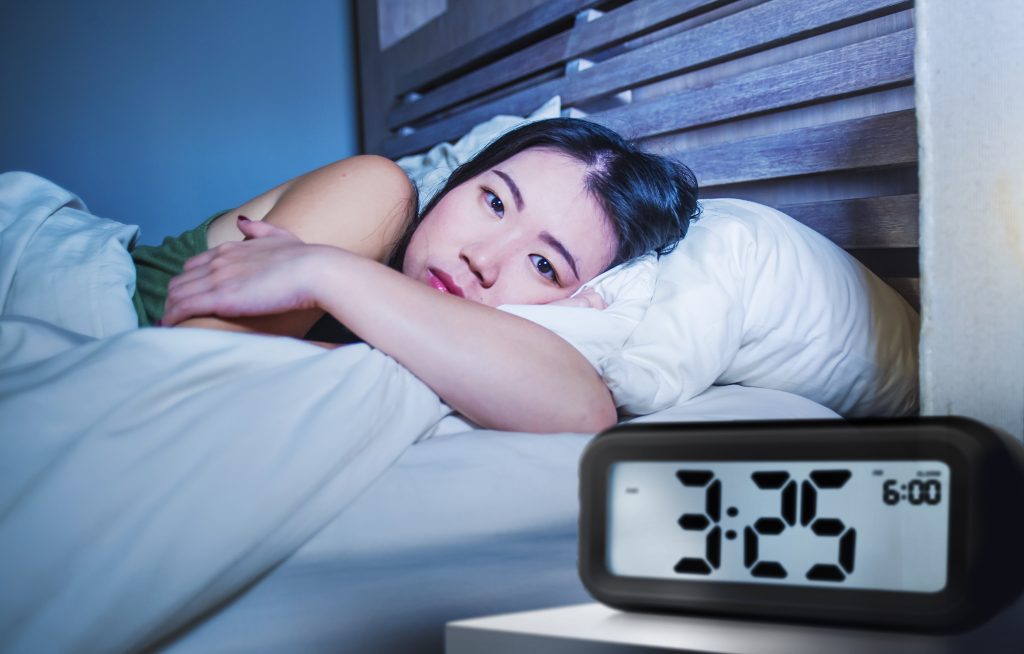Unraveling Anxiety: Strategies for Unwinding Stress

lifestyle portrait of young pretty depressed and sad Asian Korean woman awake having insomnia disorder lying in bed sleepless suffering anxiety and depression with alarm clock late night hour
In today’s fast-paced world, it’s almost inevitable to experience anxiety and stress. Whether it’s due to work pressure, personal relationships, or global events, anxiety can manifest itself in various forms and impact our mental and physical well-being. However, understanding the root causes of anxiety and adopting effective strategies to unwind stress can significantly improve our quality of life. In this article, we will delve into the intricacies of anxiety, explore its underlying mechanisms, and discuss actionable techniques to unravel stress.
Knowledge of Anxiety:
Anxiety is a normal reaction to pressure or imagined dangers. It’s our body’s way of preparing for a challenge or a potentially dangerous situation. In small doses, anxiety can be beneficial, motivating us to take action and perform better. However, when anxiety becomes excessive or chronic, it can have detrimental effects on our mental and physical health.
There are various types of anxiety disorders, including generalized anxiety disorder (GAD), social anxiety disorder, panic disorder, and phobias, each with its own set of symptoms and triggers. Common symptoms of anxiety may include restlessness, irritability, muscle tension, difficulty concentrating, and excessive worry.
Unraveling the Root Causes:
To effectively manage anxiety, it’s essential to identify its root causes. While the triggers may vary from person to person, some common underlying factors include:
Stressful Life Events: Major life changes such as job loss, relationship issues, financial problems, or health concerns can trigger anxiety.
Genetic Predisposition: Research suggests that genetics play a role in predisposing individuals to anxiety disorders. If you have a family history of anxiety, you may be more susceptible to experiencing it yourself.
Trauma: Past traumatic experiences, such as abuse, accidents, or natural disasters, can contribute to the development of anxiety disorders.
Brain Chemistry: Imbalances in neurotransmitters such as serotonin, dopamine, and gamma-aminobutyric acid (GABA) can influence mood and anxiety levels.
Personality Factors: Certain personality traits, such as perfectionism, pessimism, or a tendency to overthink, may increase the risk of developing anxiety disorders.
By identifying the underlying causes of anxiety, individuals can take proactive steps to address and manage their symptoms effectively.
Strategies for Unwinding Stress:
While it may not be possible to eliminate stress entirely from our lives, there are several strategies that can help us unravel anxiety and cultivate a sense of calm:
Mindfulness and Meditation:
Mindfulness practices, such as meditation, deep breathing, and progressive muscle relaxation, can help calm the mind and reduce anxiety levels. Taking a few minutes each day to engage in mindfulness exercises can have a profound impact on our overall well-being.
Regular Exercise:
Physical activity is not only beneficial for our physical health but also plays a crucial role in managing anxiety and stress. Exercise releases endorphins, neurotransmitters that act as natural mood lifters, and helps reduce cortisol levels, the stress hormone.
Healthy Lifestyle Habits:
Maintaining a balanced diet, getting adequate sleep, and avoiding excessive caffeine and alcohol can help stabilize mood and reduce anxiety symptoms.
Limiting Exposure to Stressors:
While it may not be possible to avoid all sources of stress, it’s essential to identify and minimize exposure to triggers whenever possible. This may involve setting boundaries, learning to say no, or delegating tasks to others.
Cognitive-Behavioral Therapy (CBT):
CBT is a widely recognized therapeutic approach for treating anxiety disorders. It helps individuals identify and challenge negative thought patterns and develop coping strategies to manage anxiety more effectively.
Seeking Support:
Talking to a trusted friend, family member, or mental health professional can provide valuable support and perspective when dealing with anxiety. Support groups and online forums can also offer a sense of community and understanding.
Mindful Technology Use:
In today’s digital age, constant connectivity can contribute to feelings of anxiety and overwhelm. Practicing mindful technology use, such as setting boundaries around screen time and taking regular breaks from devices, can help reduce stress levels.
Engaging in Relaxation Activities:
Activities such as reading, listening to music, spending time in nature, or engaging in hobbies can provide a much-needed escape from stress and promote relaxation.
In summary:
Anxiety is a common and often debilitating condition that affects millions of people worldwide. However, by understanding its underlying causes and adopting effective strategies for managing stress, it’s possible to unravel anxiety and cultivate a greater sense of calm and well-being. From mindfulness and meditation to exercise and healthy lifestyle habits, there are numerous tools and techniques available to help individuals cope with anxiety and lead happier, more fulfilling lives. By prioritizing self-care and seeking support when needed, we can navigate life’s challenges with resilience and grace.






